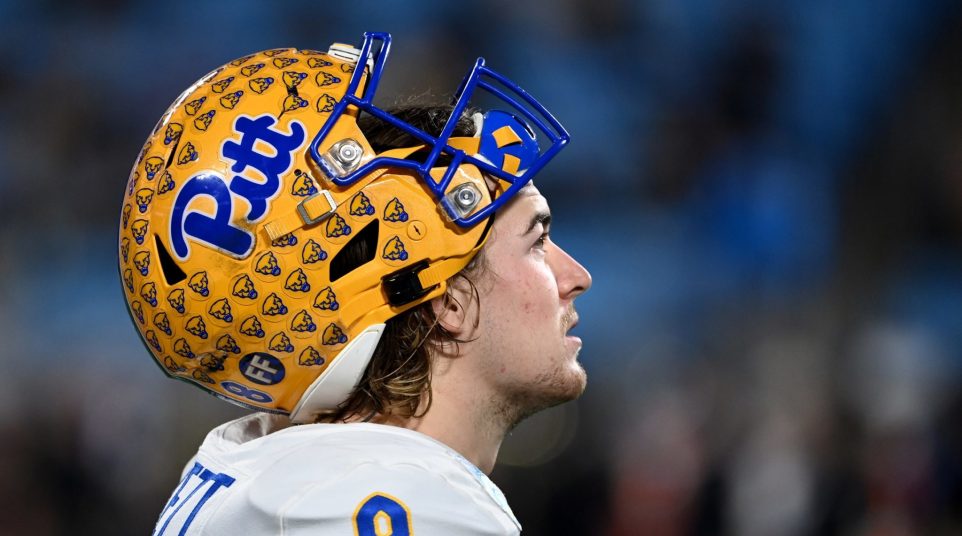
Why an expanded Playoff won't fix the bowl opt-out issue
I’ve seen the take already. It’s not a very good one, but it’s out there.
“You’re not going to fix the opt-out issue until you expand the Playoff.”
Nope. Try again.
Sure, instead of the top 4 teams in the country avoiding the opt-out issue, you’d have the top 12 dodging that bullet. But you’re not fixing that just by giving 8 more teams a path to the national championship. Last I checked, we’ve still got dozens of bowl games. Tell me how the Birmingham Bowl is being fixed because there are 12 Playoff teams instead of 4.
So let’s tweak.
“You’re not going to fix the opt-out issue when you expand the Playoff.”
There. That’s better.
That’s the more accurate take on an issue that’s been magnified for a few reasons. Increased emphasis on the Playoff is part of that. So is programs firing coaches earlier than ever in the Early Signing Period era. We’ve also got the new era of the transfer portal, which means that first-time, undergraduate transfers are no longer forced to sit a full year because of NCAA rules. And college football is no longer dominated by upperclassmen in the way it was at the turn of the century, meaning players are draft-ready earlier than ever.
If we really want to get into the weeds, we can discuss how the minimum NFL contract for first-year players is 62% more than what it was in 2015. Hence, the increased incentive to get that NFL paycheck.
None of that is going away if the Playoff goes from 4 to 12 teams. If anything, we’ll see the opposite play out. With more emphasis on “Playoff or bust,” how is the Texas Bowl going to suddenly become a more appealing game to play in? The only way that can turn around is if we increase bowl game incentives.
My brother, Ryan, who does great work for us on our Big Ten site SaturdayTradition.com, suggested the idea of NIL-based cash incentives for bowl games. Corporate sponsors could step in and offer up a cash prize for the stars of the game. There’s still something to be said for offering a potential $100,000 purse to a 22-year-old for performing well in a football game. Sorry, but that’s a whole lot better than that fourth pair of AirPods, especially in a time when, thanks to NIL, players can accept gifts without playing in bowl games.
What’s clear is that bowl executives can ill afford to grunt and claim that “kids don’t think like they used to.”
Um, last I checked, kids also didn’t used to have the same financial incentive that they did 20-30 years ago in the NFL, but sure, let’s pretend like that’s not a thing. Let’s also pretend like all of us don’t have selfish motives for wanting to see stars in bowl games. Even Kirk Herbstreit, noted consumer of college football. continued to vent about bowl opt-outs.
“You go and you compete your ass off,” Herbstreit said on a media Zoom call with reporters on Monday. “That’s what you do. You got to shake it off and move on to the next game and get the bad taste out of your mouth.”
Also of note, Herbstreit went undrafted and could’ve only helped his draft stock by playing in a bowl game, but I digress.
(Herbstreit is excellent. I just think yelling at clouds about this issue isn’t changing reality. It’s like being mad that your favorite TV show isn’t coming out with another season. I can wish that “Parks and Recreation” gave us another season while also acknowledging that Chris Pratt and Co. probably wanted to devote their time to movies instead of another 23-episode season of an NBC sitcom.)
Let’s pretend like we had Playoff expansion and we had a 12-team field in 2021. These are the guys who would’ve played in Playoff games instead of opting out like they did in their non-Playoff bowl games:
- Kenny Pickett, Pitt (pictured, above)
- Taysir Mack, Pitt
- Damarri Mathis, Pitt
- Kenneth Walker III, Michigan State
- Garrett Wilson, Ohio State
- Chris Olave, Ohio State
- Haskell Garrett, Ohio State
- Nicholas Petit-Frere, Ohio State
- Kyren Williams, Notre Dame
- Kyle Hamilton, Notre Dame
Yeah, those guys are good. You’ve got a handful of future first-rounders. But man, that’s a small fraction of the amount of opt-outs we’re seeing. Again, that’s also without knowing how draft-eligible players will react if they’re competing for a 12-team Playoff berth, only to come up short.
An expanded Playoff won’t have any impact on the same factors that are currently contributing to opt-outs. The NFL’s rookie minimum contract isn’t suddenly going to decrease — the new CBA is locked in through 2030 — and the all-important second contracts aren’t going to decline once the NFL’s new $100 billion TV contract begins in 2023 (that’s “billion” with a “B”).
Now, where it gets interesting is if college football truly enters the pay-for-play era in the latter half of the decade. If that’s the case, athletes will be employees with contracts. As much as that essentially blows up whatever concept of amateurism still exists, it’s probably the only thing that can really put the kibosh on bowl opt-outs.
Is that where we’re heading? We’ll see.
What seems clear is that we’re heading toward expansion, like it or not. What also seems clear is that bowl opt-outs aren’t changing under the current circumstances.
Like it or not.
